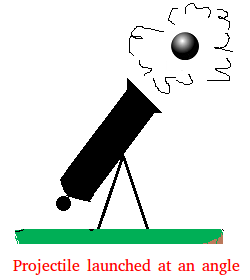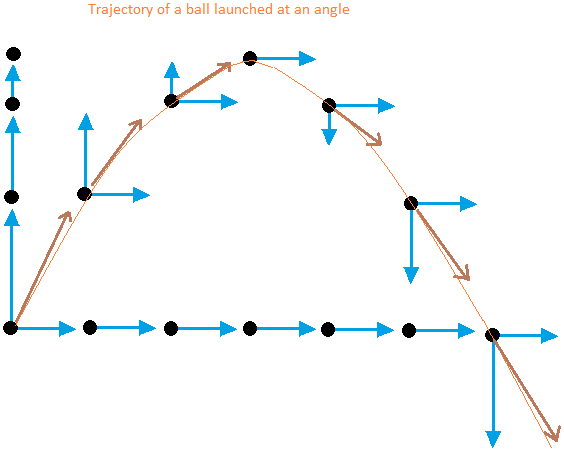Projectile Launched at an Angle
For any projectile launched at an angle, you will realize that the projectile will have not only an initial horizontal velocity, but also an initial vertical velocity.
For, example, let's say that you launch the same cannonball we use in this lesson at an angle this time.
Once the cannonball is in the air, let us see how this will affect the vertical speed and the horizontal speed.
First, let us talk about the horizontal speed.

Good news! Whether the projectile is launched horizontally or at an
angle, there is still no horizontal force acting on the cannonball . And
again with no horizontal force, there is no horizontal acceleration.
And with no horizontal acceleration, the cannonball will once gain move
horizontally with constant velocity.

Now, what about the vertical speed? When an object is thrown straight up
into the air, little by little the speed will decrease until the speed
is zero. Gravity will keep decreasing the speed. Then, the object will
go down with increasing speed. Gravity will keep increasing the speed.

Let us put together the vertical and horizontal movement/speed of the
cannonball to see what we will get. See below the horizontal speed, the
vertical speed, and the resultant speed in brown. Once again, you can
see that the ball move along the orange curve which is a parabola. The
vectors shown in brown are tangent to the orange curve or parabola.
